Blueberry is a perennial flowering plant that produces blue or purple berries. It belongs to North America and northern South America, where the highbush blueberry is cultivated and grows wild in hilly and forest regions. These are medium bushes that produce bunches of blue to purple fruits — and they have blueish-white ash on them.
Blueberries are well-known worldwide for their unique tangy, sweet flavor. They are enjoyed fresh off the bushes or used to create many delicious recipes. The fruit is often processed into jam, syrup, and other products. While there might be variations between species, blueberries are generally considered healthy products. For some, even, these fruits are part of the superfood.

The health benefits of blueberry are of growing interest. The diet supplementation with blueberries is a strategic topic for enhancing dietary nutrition. Blueberries are famous for being a treasure trove of nutrients. Over the past twenty years, research on health foods has revealed blueberries' bioactive and health-promoting properties. Blueberries and their phytochemical anthocyanins are associated with decreasing biomarkers and risk for major diseases in a growing body of evidence, contributing to a major burden on our socioeconomic systems. Moreover, because blueberries are as safe as they come, nearly everyone can indulge in their delicious flavor and healthy effects. Read this blueberry article to understand why you should have them daily.
The blueberry is a fruit-bearing shrub with roots in the heath family (Ericaceae![]() ). It is also from the same family of plants as the common cranberry. Blueberry certainly has a high nutritional value. For a long time, fruit has been the king of the functional food category. These berries solve quite a few health problems. Focusing on the most likely routes of biological action and the present status and prospects for processed foods and dietary supplements derived from blueberries.
). It is also from the same family of plants as the common cranberry. Blueberry certainly has a high nutritional value. For a long time, fruit has been the king of the functional food category. These berries solve quite a few health problems. Focusing on the most likely routes of biological action and the present status and prospects for processed foods and dietary supplements derived from blueberries.
Blueberry is one of the fruits that has an extreme antioxidant power. This is a good thing because consuming such foods can keep many of us away from some deadly diseases. The role of plant antioxidants is well credited when it comes to defending the body against harmful effects. Research shows that consuming blueberries will reduce oxidative stress and elevate anti-inflammatory cytokines. A blueberry diet can alleviate high-carbohydrate meal-induced postprandial stress. If natural antioxidants were a food, blueberries would come at the top. Blueberries still have antioxidants that perform even after being processed, so a glass or two of blueberry juice can do you good.
Blueberries also have beneficial effects on the management of obesity. Administering blueberry leaf extract gave weight loss![]() results in several studies. Blueberries also offer some therapeutic tools for obesity-related comorbidities. Hence, consuming blueberries can help avoid excess weight and its negative consequences. Blueberries are fruits with low calories. You do not have to worry about weight gain, but you should still exercise in moderation. The permanent problem of obesity worldwide can be avoided and treated by some effects of freeze-dried blueberry powder for its benefits in obesity-related chronic diseases.
results in several studies. Blueberries also offer some therapeutic tools for obesity-related comorbidities. Hence, consuming blueberries can help avoid excess weight and its negative consequences. Blueberries are fruits with low calories. You do not have to worry about weight gain, but you should still exercise in moderation. The permanent problem of obesity worldwide can be avoided and treated by some effects of freeze-dried blueberry powder for its benefits in obesity-related chronic diseases.
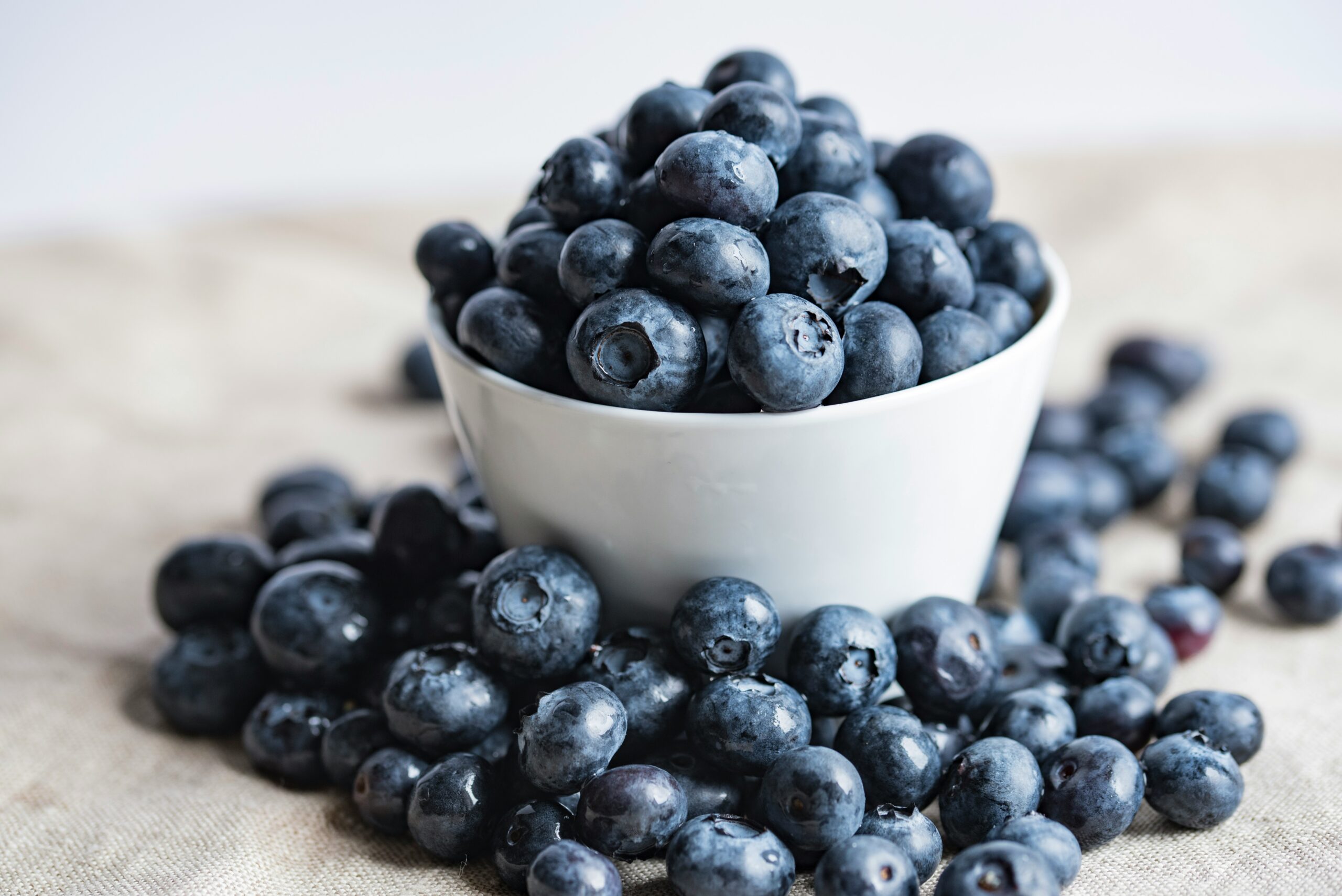
The inclusion of blueberries in the diet also confers anti-inflammatory action. Due to these properties of the fruit, blueberries can alleviate inflammation. This is also relevant to the previously mentioned obesity since inflammation plays an important role in the development of comorbidities. Chronic inflammation can be well-guarded by eating blueberries. A plethora of constituents in blueberries impart a favorable anti-inflammatory characteristic to this fruit. This makes it a strong action that can be utilized to support health.
Blueberries' anti-diabetic effect is another important characteristic. Researchers discovered that the compounds present in blueberries can treat hyperglycemic symptoms![]() . Inflammatory genes are also down-regulated, and protection against insulin resistance has been observed. Blueberries in the diet also ameliorated fructose-induced metabolic dysfunctions, such as decreased plasma cholesterol and adiposity in the abdominal cavity.
. Inflammatory genes are also down-regulated, and protection against insulin resistance has been observed. Blueberries in the diet also ameliorated fructose-induced metabolic dysfunctions, such as decreased plasma cholesterol and adiposity in the abdominal cavity.
This evidence could be the foundation for a potential new treatment for obesity, a group of diseases that, in many cases, progresses into diabetes. Also, foods that help the body with diabetes are very important. The original medicines commonly used for this disease have many side effects. Thus, complication-free drugs are always sought for the treatment of diabetes, and blueberries can be a possible therapeutic alternative.
Blueberries, it turns out, can also have eye health effects. The pro-protective role of blueberries is to inhibit the harmful effects of light abuse in the eyes. The consumption of blueberries in the diet mitigates the damage of light-induced alterations in the retina. Moreover, blueberry extracts showed protective effects on retinal pigment epithelium from aging and damage caused by visible or UV light. Blueberries are often studied for their potential to protect against light-induced retinopathy![]() when consumed as part of an enhanced diet. Thus, blueberries may serve as a functional food against retinal diseases.
when consumed as part of an enhanced diet. Thus, blueberries may serve as a functional food against retinal diseases.
The liver organ is also safeguarded with blueberries. Liver diseases and inflammations are very common as well as important health problems, and we will, unfortunately, be infected with liver diseases when there is no good nutrition that can isolate us from liver diseases. Blueberries are at the top of the list for strongest antioxidant activity, translating into a hepaprotective effect for us. Hence, the fruit eases the damage to the liver cells and helps reduce the hepatitis C virus![]() RNA expression, too.
RNA expression, too.
Conclusion: Blueberry extract may prevent histological manifestations of liver fibrosis. The blueberry has been found effective in inhibiting the progression of cirrhosis with structural and functional liver changes at once. All these benefits correlate with the idea that eating more blueberries will protect the liver.
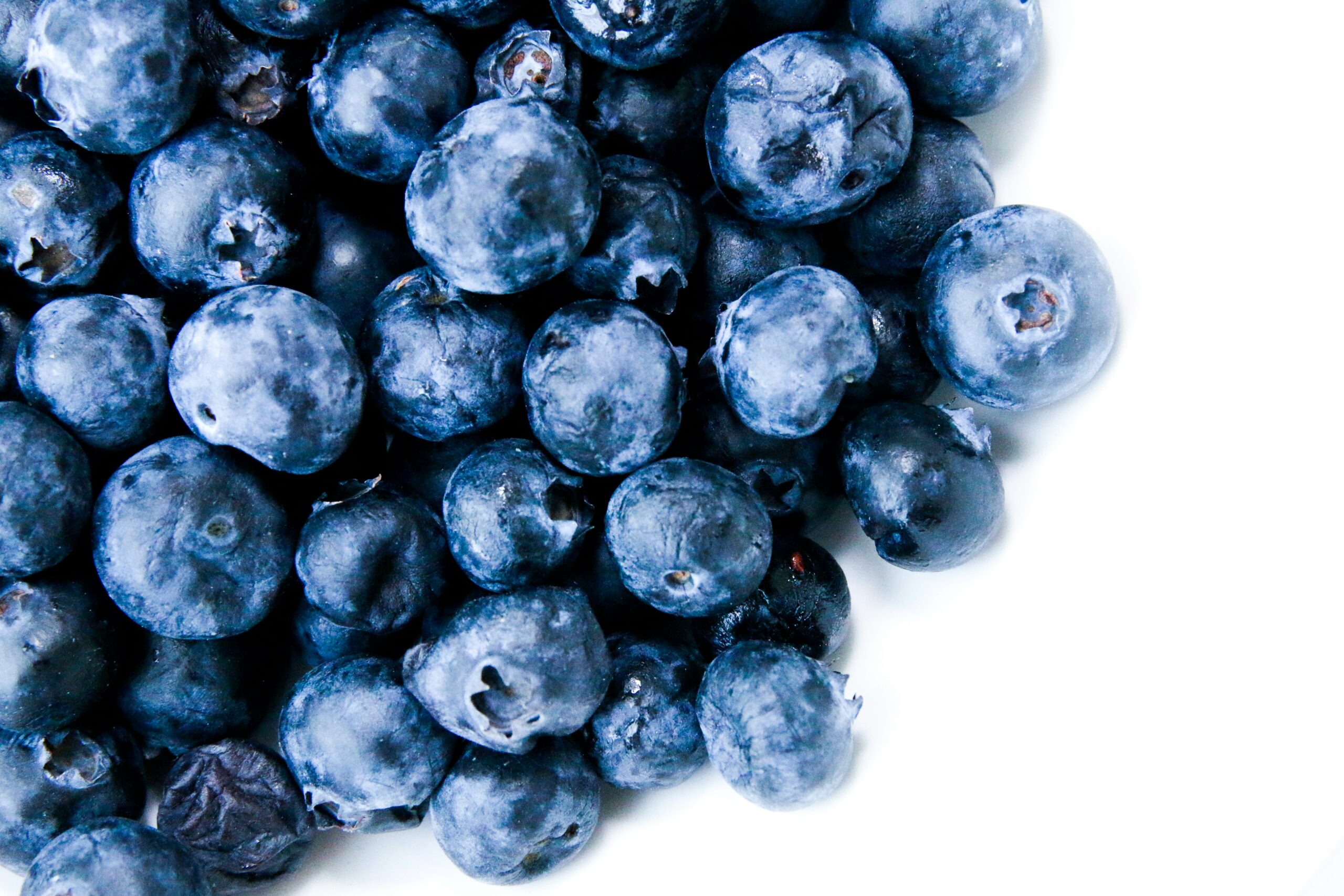
Blueberries are literal super-fruit. Wellness power flows over to the heart's circulatory system. Bioactives in blueberries are known to protect against heart damage, and researchers have demonstrated their protective effect against coronary heart disease. The antihypertensive action of blueberries also reduces cardiovascular disease risk factors significantly. Blueberries, which are rich in natural antioxidants, are highly effective for the regulation of primary hypertension. Regular consumption of blueberries in humans can lower blood pressure, aortic systolic pressure, arterial stiffness, diastolic pressure, and some cancers.
What other organs could blueberries cure? They are great for the lungs as well. The synergistic effects of blueberry components exhibited the strongest inhibitory effect on lung cancer cell growth and the greatest benefit in terms of potential future treatment and prevention of normal recurrence and multiplicity. Blueberries similarly demonstrate potent antioxidant activity against lung fibroblast cell injury.
Blueberries have another kidney-protective property. These unique fruits can shield the kidneys from oxidative harm. Studies have shown that blueberries decrease proteinuria and renal nitrites, both markers of kidney oxidative stress. Consuming these berries may also lead to a high glomerular filtration rate. Significantly, only blueberries consumed in the longer term had a therapeutic benefit.
Still not convinced that blueberries are beneficial enough? Blueberries also keep your brain healthy, so keep that in mind. Blueberries have been shown to improve neuronal signaling and memory function and delay the onset of dementia—reducing central nervous system degeneration due to suppressed inflammation and oxidative stress. Blueberries may help protect against Alzheimer's disease![]() due to their range of beneficial substances and free radical scavenging ability. It has also been shown to alleviate symptoms of depression. Blueberry supplementation seems to have a lot to do with neurocognitive health.
due to their range of beneficial substances and free radical scavenging ability. It has also been shown to alleviate symptoms of depression. Blueberry supplementation seems to have a lot to do with neurocognitive health.
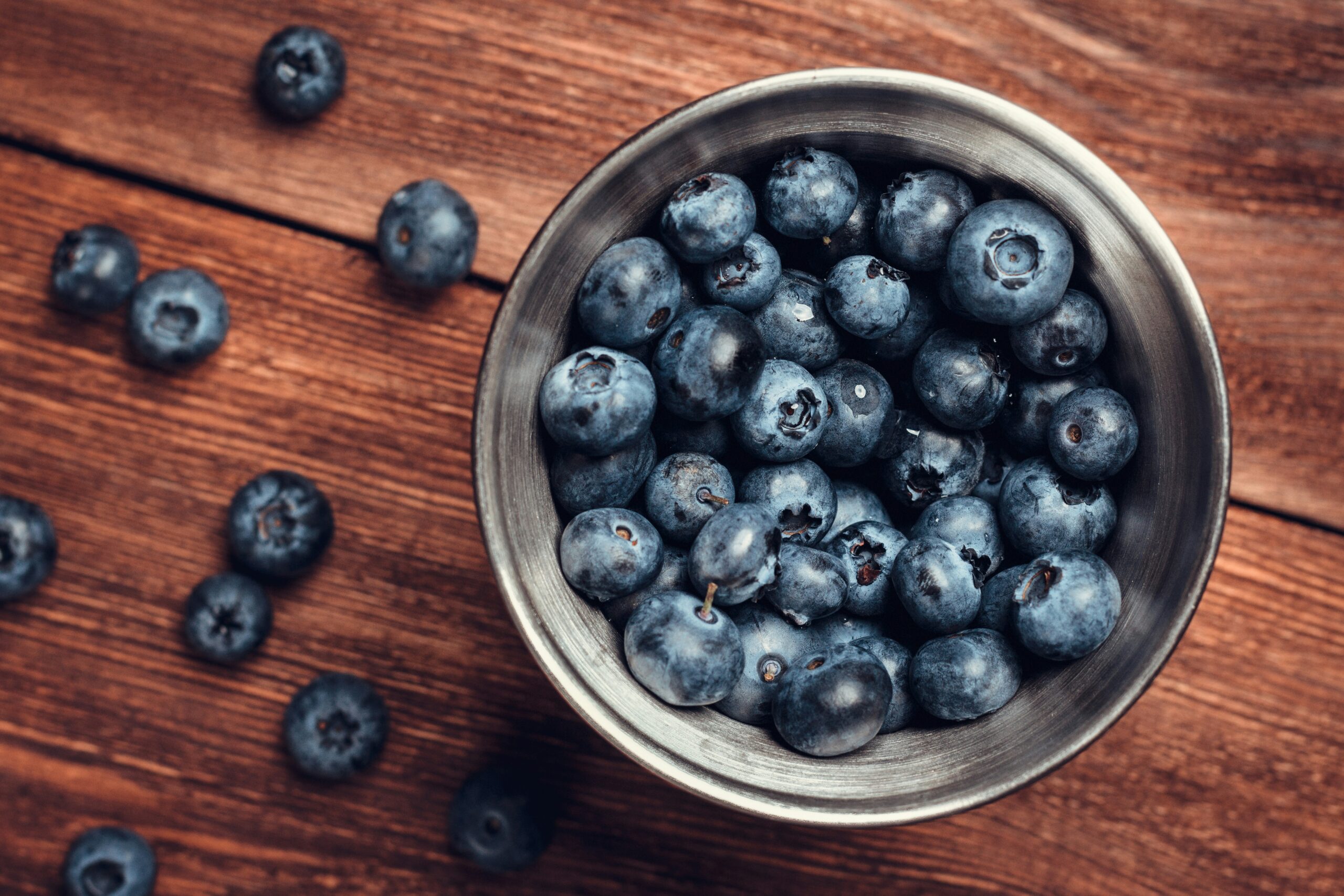
The same goes for bone health; blueberries are worth a bite. The inclusion of blueberries in its diet offsets the loss of bone density. These berries store collagen from the bone matrix to avoid destruction. This is highly helpful for those who have had an ovariectomy![]() . This is the surgical removal of the ovaries. In other cases, surgery is required and, although necessary, causes bone loss as a direct effect. Therefore, blueberry decreases bone resorption during bone metabolism and prevents the decrease of bone mineral density in bone metabolism for such patients.
. This is the surgical removal of the ovaries. In other cases, surgery is required and, although necessary, causes bone loss as a direct effect. Therefore, blueberry decreases bone resorption during bone metabolism and prevents the decrease of bone mineral density in bone metabolism for such patients.
They can also be a source of prebiotics for blueberries. One of the ways these fruits exert a prebiotic effect is by promoting beneficial bacteria in the intestinal microflora. Good bacteria help to maintain the digestive system (stimulation of intestinal peristalsis, regulation of the composition of microbiota), support immunity, and so on. The study observed an increase in Lactobacillus rhamnosus![]() and Bifidobacterium brief
and Bifidobacterium brief![]() , which are essential for general health. Polyphenols and fiber content were high and responsible for blueberries' probiotic effect. The potential prebiotic benefit of blueberries is doing more definitive studies to promote gut health.
, which are essential for general health. Polyphenols and fiber content were high and responsible for blueberries' probiotic effect. The potential prebiotic benefit of blueberries is doing more definitive studies to promote gut health.
They are one of the healthiest fruits; blueberries follow suit and have numerous health benefits. Let's open up this fantastic berry and see what it hides within. Blueberries are composed primarily of carbohydrates. They also offer little bits of protein and fats. It is also good to remember that blueberries are low caloric, and 100 grams of fruit supplies only 57 kcal![]() . So you don't have to worry about sugar levels. Blueberries are also among the most exciting potential natural sources of nutrients and bioactive compounds. Blueberries provide many functionalities that are beneficial to health and can prevent many diseases. Now, let us see the main elements of blueberries that ensure our health benefits.
. So you don't have to worry about sugar levels. Blueberries are also among the most exciting potential natural sources of nutrients and bioactive compounds. Blueberries provide many functionalities that are beneficial to health and can prevent many diseases. Now, let us see the main elements of blueberries that ensure our health benefits.
Like all fruits, blueberries are also a source of important fiber. Why a high-fiber diet is beneficial: This component enhances intestinal transit, promotes fermentation processes in the intestine, and positively affects lipid and carbohydrate metabolism. Thus, it is worth eating fruits such as blueberries (and many more), which we need to eat for the fiber that our body needs.
Minerals are another major nutrient of the diet, and guess what? Blueberries give us these as well. The diversity of minerals is found in these berries in different amounts. There are plenty of them: phosphorus, magnesium, and calcium, to name a few. Another benefit of blueberries is that they boost minerals and other nutrients in the diet to avoid deficiencies.
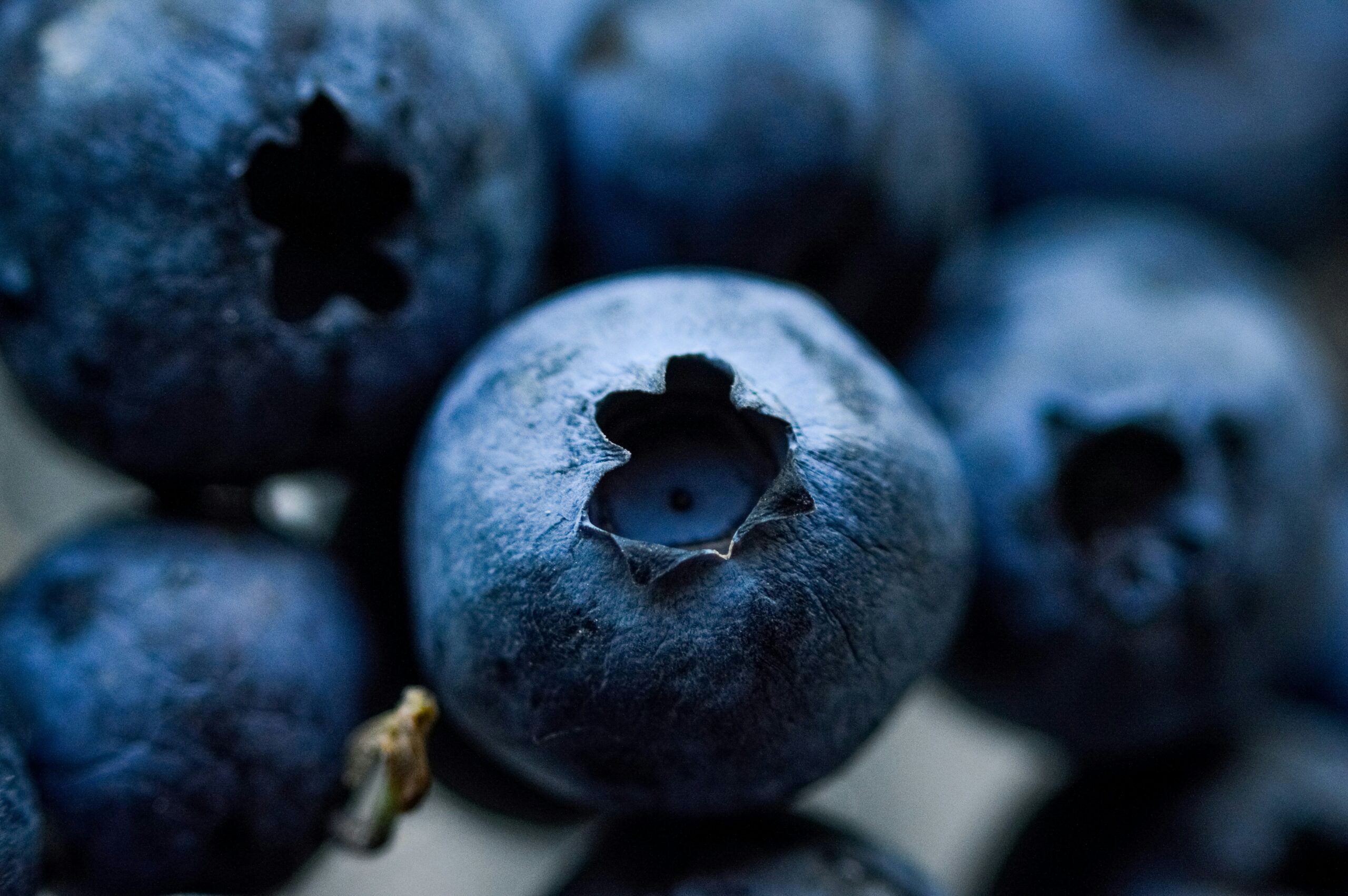
Blueberries have vitamins, too, so I'm sure they will also be useful to you. Blueberries contain several vitamins. The most common is ascorbic acid, referred to as vitamin C; also present in the fruit are B vitamins such as folic acid. Blueberries are also rich in retinol, a vitamin A derivative; with such vitamin diversity, no wonder they are good for your health.
Polyphenols are particularly beneficial substances in blueberries. These amazing elements provide a shield from many ailments. For example, some studies have shown that phenolic compounds inhibit cancer cell growth. Most blueberry antioxidant functions and some health effects are primarily attributed to anthocyanins![]() .
.
These special compounds provide the deep color of blueberries. Hence, they are natural dyes. But their properties do not stop here. Anthocyanins are natural plant polyphenols. The antioxidant power of anthocyanins is high; in fact, it is higher than that of vitamins. And is largely responsible for the broad spectrum of health benefits blueberries provide. Anthocyanins are beneficial for eyesight, cardiovascular function, and so on. They boost cerebral function, offer lung protection, and make bones strong. Due to the high content of polyphenols, such as anthocyanins, blueberries are a functional food with various health properties.
Blueberries are awesome, but are they healthy for you all the time? None of us probably have too much to be concerned about regarding this fruit. Safe is another benefit of blueberries. Research indicates that no toxicity was observed in blueberries. There were no side effects either. They listed no contraindications, so again, pretty much all healthy folks get the godsend benefits of blueberries! However, like any food product, it should be used cautiously, specifically for allergens and interactions with fruits from medicines.
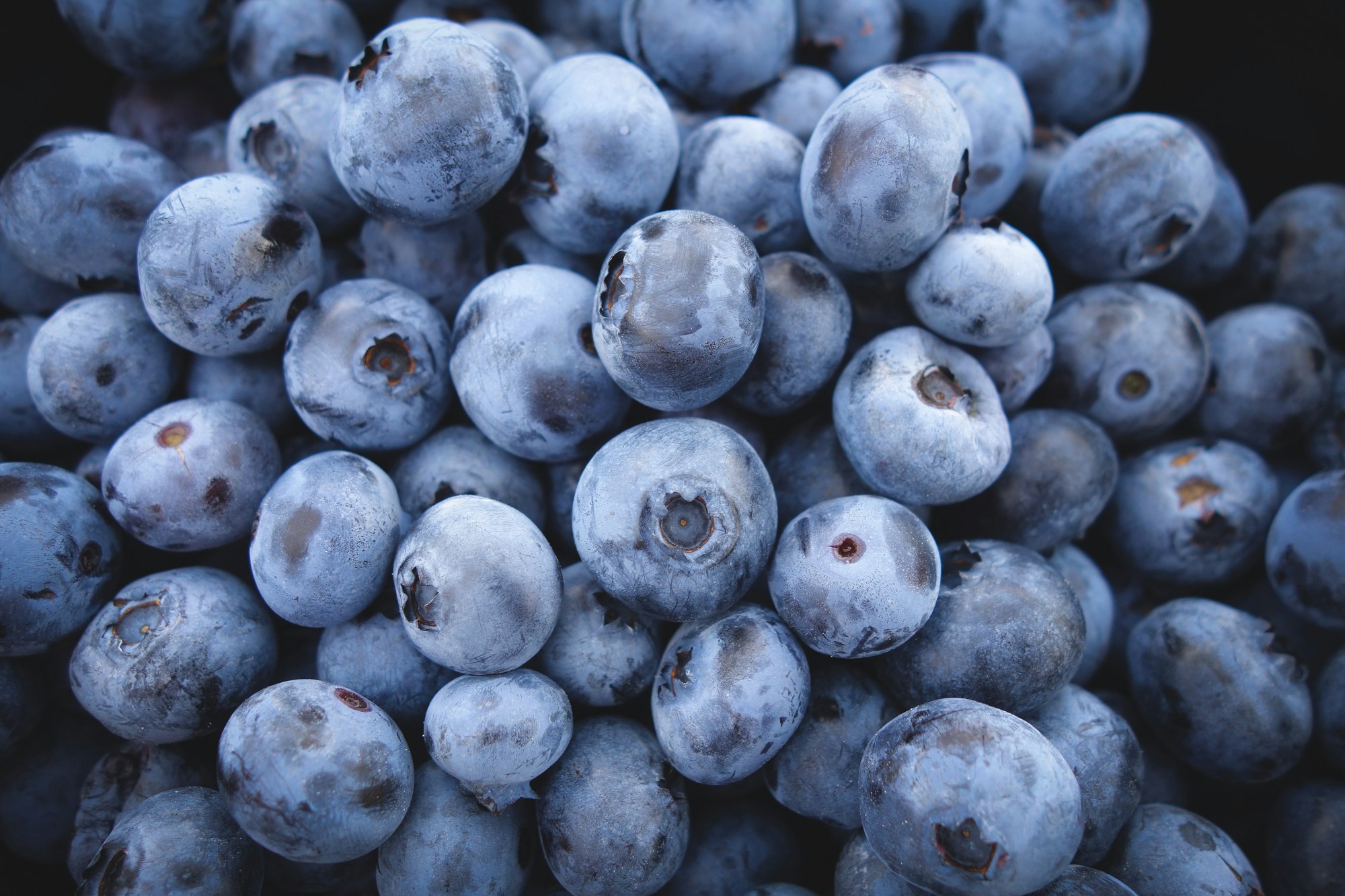
It is possible to have an allergy to fruits. Thus, an allergy to blueberry fruit is a contraindication to its consumption. It is rare but possible to be allergic to blueberries. For this reason, we suggest you proceed with caution. Do not ignore the symptoms after eating blueberries. Ingestion of such allergenic products may lead to life-threatening, anaphylactic reactions.
Blueberries are powerful fruits. Therefore, they can interact with medications, too. The effect of the drugs they use can be modified by dietary supplements and food ingredients, with the possible decrease or increase in the absorption of substances. Follow the directions for use contained in the leaflet or in the doctor's guidelines if you are using any medications.